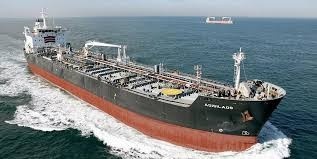Bimco is urging Nigeria to make use of its new assets to take action against rampant pirates in the Gulf of Guinea. Attacks have spiked since the beginning of the dry season in October. In November alone, 36 seafarers were kidnapped from five vessels, including a product tanker managed by Evangelos Marinakis-controlled Capital Ship Management on Sunday night. General cargo ships, a bunker tanker and a heavylift ship were also raided.
Bimco said Nigeria is promoting a narrative in which it is taking a strong stance against piracy. The government has invested heavily in anti-piracy capabilities such as coastal surveillance, command and control systems, patrol ships, patrol aircraft, unmanned aircraft, armoured vehicles and training. Known as Project Deep Blue, these capabilities are expected to be fully operational this year, with the aim of eradicating Nigerian piracy by the first half of 2021, the country has said.
Writing in Bimco’s quarterly bulletin on Wednesday, the shipowner organisation’s head of maritime safety and security, Jakob Larsen, said the timing to act is now good.
“As the dry season has kicked in, there is certainly an urgent need for these assets to be deployed in the Gulf of Guinea,” he said.
Larsen said a quick response by air and naval assets is key to the successful interception of pirates. He believes the threat can be managed easily with a combination of both.
“We know the recipe for success from the experience gained off Somalia,” he added.
“We hope that Nigeria will invite international navies already deployed in the area to cooperate to suppress piracy in international waters, as there is no legitimate reason not to invite international cooperation.”
Denmark is already trying to gather a coalition of naval forces to police the region. Italy has a warship in the Gulf of Guinea to assist local forces.
“Now that the assets and capabilities are in place, the coming months will be the litmus test for the country. The eyes of the international community and the shipping industry are now firmly on Nigeria,” Larsen said.
Owners will also be looking towards the implementation of the Nigerian Suppression of Piracy and Other Maritime Offences Act 2019, which criminalises piracy and imposes obligations to report knowledge of piracy activity. So far, there have been no convictions of pirates. But a trial is pending of 10 people charged with attacking the Chinese trawler Hailufeng 11 in May, kidnapping crew members.
“We understand the trial is about to start. Then we will see whether the pirates will be convicted or not. It may offer a view into how effective the new act will be going forward,” Larsen said. He believes pirates in the Niger Delta can be relatively easily located when they attack at sea.
The long distances they need to travel back to shore from attack sites mean many other vessels can report sightings. “Reporting by merchant ships to the authorities is a very important tool in the fight against piracy,” he said.



